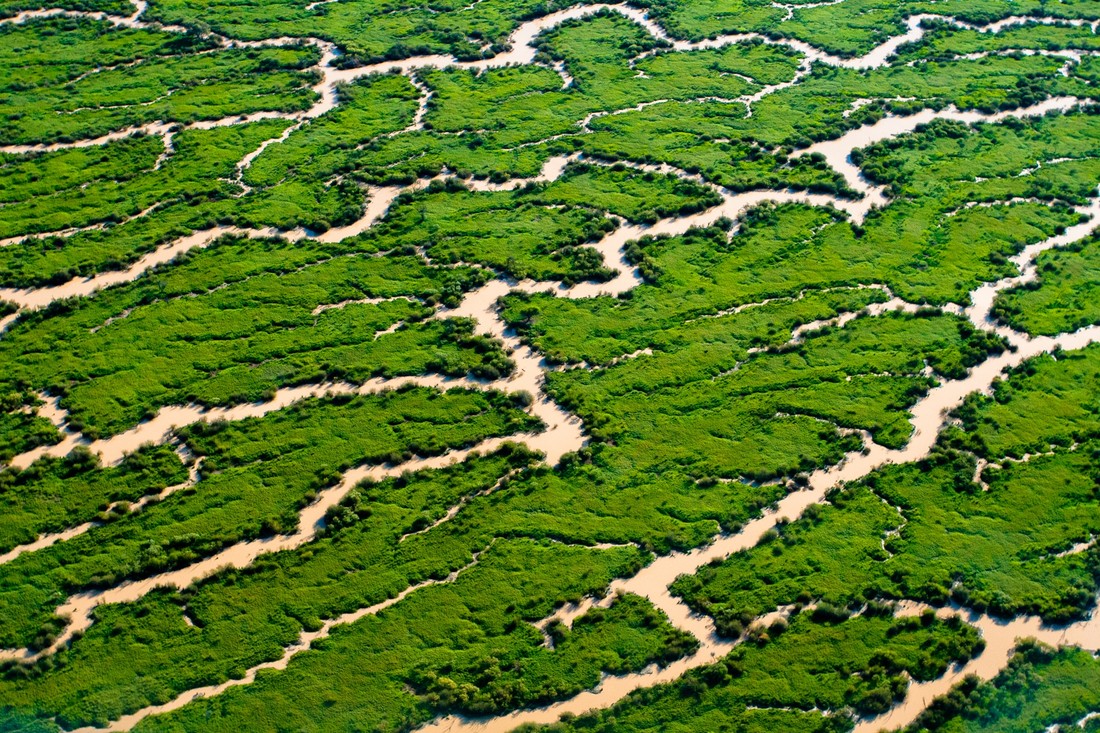Pastoralists, Traditional Owners, scientists, and conservation groups align to support stronger Lake Eyre Basin River protection as Queensland Government releases long-awaited draft options for consultation
OBE Organic, Mithaka Aboriginal Corporation, and the Western Rivers Alliance has welcomed the Palaszczuk Government’s release of a consultation paper which outlines options for meeting their election commitment to strengthen protection for the Lake Eyre Basin’s rivers and Channel Country floodplains from inappropriate oil and gas developments.
Josh Gorringe, Traditional Owner and General Manager of the Mithaka Aboriginal Corporation said:
“We’re very happy to see the consultation document released as a step along the way to the Queensland government fulfilling their election promise to protect the rivers and floodplains protected from gas fracking.
“The Channel Country is so important to the Mithaka people because of the song lines and cultural sites in its waterways and floodplains.
“The Channel Country is the last of the free flowing desert rivers in the world, which means it is also important to all Australians.
“As Traditional Owners we’ve been fighting for protections for the rivers and floodplains for over thirty years.”
“We also want to see the local pastoral industry protected because it’s an important source of work and income for Traditional Owners, including our young people. Gas fracking puts the pastoral industry at risk.” Said Mr Goringe.
David Brook OAM is a pastoralist from Birdsville in Queensland’s Channel Country who owns organic cattle stations in both the Queensland and South Australian sections of the Lake Eyre Basin. David is the co-founder of OBE Organic, Australia’s first exporter of organic beef.
“It is the long-held desire of local pastoralists, Traditional Owners, townspeople and conservationists, to see the very best protection of the floodplains of the Channel Country rivers which flow into Lake Eyre.
“We look forward to the Palaszczuk Government in Queensland, acting on their election commitment so that the significant waterways and floodplains will not be subject to unwise resource development which might impede or contaminate the annual flows
“This region now supports the largest acreage of land in the world that is certified for organic meat production.” Said Mr Brook.
More information on OBE Organic’s position on Lake Eyre Basis river and floodplain protection can be found here.
The Western Rivers Alliance is an alliance of Channel Country pastoralists, Traditional Owners conservation organisations and scientists working together to strengthen protection for the free-flowing rivers of the Lake Eyre Basin and their Channel Country floodplains. Riley Rocco, Coordinator for the Western Rivers Alliance, Said:
“We will be making sure the Palaszczuk Government hears loud and clear the voices of the Traditional Owners, the local pastoralists and the scientists who are standing together with one clear message- the rivers and floodplains of the Lake Eyre Basin are no place for oil and gas fields.”
“We know that the destruction of these globally significant wetlands and rivers is not something that Queenslanders want- we encourage people to let the Queensland Government know that allowing new oil and gas mining on top of the rivers and floodplains is simply unacceptable”.
“The Palaszczuk Government has promised at every election to protect this globally significant river system. Delivering on this commitment will show the world that Queensland is leader in protecting our natural and cultural heritage for future generations..
END
Riley Rocco
Western Rivers Alliance
0415 568 247
riley@outbackqueensland.org.au
Background:
- The Palaszczuk Labor Government in Queensland has committed to strengthening protections for the rivers and floodplains of the Lake Eyre Basin at the 2015, 2017, and 2020 elections, but is yet to deliver on this commitment.
- The Lake Eyre Basin is well recognised as an area rich in natural and cultural heritage. The major rivers of the Lake Eyre Basin, the Georgina, Diamantina and Cooper Creek, are some of the world’s last uncompromised rivers. The Lake Eyre Basin’s rivers have the most variable flow patterns of any rivers on the planet, creating a unique ecology (Kingsford, 2017). Displaying one of the world’s most spectacular natural phenomena, when reaching the Channel Country, floodwater spills into hundreds of braided channels and recharges the waterholes and wetlands. This attracts birds from thousands of kilometers away and sustains wildlife across an area covering one sixth of the Australian continent.
- The rivers of the Lake Eyre Basin are of immeasurable importance to the Basin’s First Nations people with the waterways forming an expansive network of songlines. These once served as an extensive network of trading routes labeled by archeologists as ‘Australia’s Silk Road’ (Lu, 2022). The Lake Eyre Basin Traditional Owner Alliance supports increasing river protection including prohibiting unconventional gas fracking.
- Cattle grazing is central to the local economies and way of life in the Channel Country today. Local graziers rely on unpolluted and unimpeded floodwaters to naturally irrigate the Channel Country floodplains that are world-renowned for their productive pastures following a flood.
- In 2014, the Wild Rivers Act 2005 was repealed and the Regional Planning Interests Act 2014 (RPIA) was introduced. Sections the Lake Eyre Basin Rivers in Queensland along with most Channel Country floodplains were declared under the RPIA as a ‘strategic environmental area’ including a ‘designated precinct’ (SEA-DP) where certain activities are prohibited as ‘unacceptable uses’ including broadacre cropping and open-cut mining – however petroleum and gas mining is permitted.
- As reported by 7.30, last year UNSW peer-reviewed research found that roads built to support oil and gas mining were impacting natural flooding regimes and fragmenting the Channel Country floodplains.
- Several prominent river scientists have highlighted the potential for devastating impacts caused by mining and petroleum infrastructure, including all-weather roads and levee banks, cutting off or diverting flows across Channel Country floodplains and compromising aquatic ecosystems, drought refugia (waterholes) and grazing pasture (Arthington & Balcombe, 2011; Sheldon et al., 2010; Dickman et al., 2017; Kingsford, 2017).

